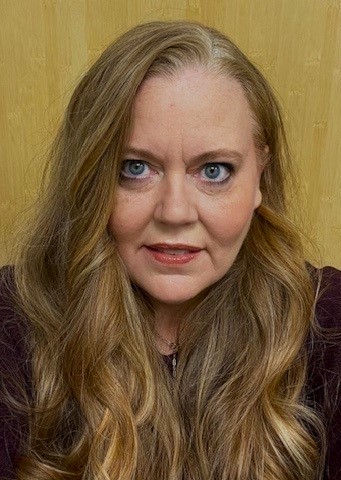Member Spotlight: Julie Adcock
Meet Julie Adcock
Owner of Kaleidoscope Behavior Analysis and Therapy, a CASP member organization
Biography
 Julie M. Adcock is a dedicated BCBA and proud founder of Kaleidoscope Behavior Analysis & Therapy. Her journey in the field began with the completion of her M.S. in Behavior Analysis and Therapy from Southern Illinois University-Carbondale in 2007 and earning her BCBA credential. Julie has experience providing behavior analytic services in clinic, home, school, and community settings with children, adolescents and young adults diagnosed with Autism Spectrum Disorder, Development Disorder, Intellectual Disabilities, Emotional Disorders and Behavior Disorders. She also has experience with the application of behavior analysis in classroom and school-wide behavior management systems.
Julie M. Adcock is a dedicated BCBA and proud founder of Kaleidoscope Behavior Analysis & Therapy. Her journey in the field began with the completion of her M.S. in Behavior Analysis and Therapy from Southern Illinois University-Carbondale in 2007 and earning her BCBA credential. Julie has experience providing behavior analytic services in clinic, home, school, and community settings with children, adolescents and young adults diagnosed with Autism Spectrum Disorder, Development Disorder, Intellectual Disabilities, Emotional Disorders and Behavior Disorders. She also has experience with the application of behavior analysis in classroom and school-wide behavior management systems.
For the past 15 years, Julie has focused on founding and growing Kaleidoscope Behavior Analysis & Therapy with the mission of providing quality behavior analytic services. Throughout this quest, she has been able to learn invaluable knowledge regarding collaboration with stakeholders, advocacy, insurance reform and the trajectory of our field. Julie is passionate about mentorship and is dedicated to nurturing the growth and development of her staff to optimize client outcomes. She is enthusiastic about the application of OBM principles to drive operational excellence within her organization, as well as fostering a culture of continual growth and innovation to meet the evolving needs of the community.
Interview
Tell us about Kaleidoscope Behavior Analysis and Therapy.
Kaleidoscope Behavior Analysis & Therapy was founded through an idealization of creating an environment in which children were able to thrive and grow to their full potential. Through the encouragement of some amazing parents of children with autism spectrum disorder, it became a reality in 2009 when we were able to open a small clinic and provided home, community, and school support. Our dedicated staff travelled up to an hour away to serve families unable to obtain services locally. Some of our families travelled further to seek services in our clinic. At this time, ABA was not well known. Insurance mandates were at the cusp of creation.
The families were strong advocates for their children. Through their advocacy, I was able to learn how best to assist in their journey to obtain services via insurance and the school systems. Through the desire to obtain the best possible outcomes for their children, I learned how to be their partner in advocacy, a helping hand to give support, and an expert in behavior analysis they needed to overcome the barriers to care their children were experiencing. As knowledge of ABA grew and our rural area began being serviced by a nearby university, a new opportunity was presented to relocate to Clarksville, Tennessee to serve military families. At the time, Clarksville was underserved and as a former military spouse, I understood the difficulties these families were having.
In 2011, KBAT relocated to Clarksville. For several years, KBAT provided home, community, and school services. In 2014, we were able to open a small 3 room clinic. As the years have passed, we have been able to expand to meet the needs of many more families; both military and civilian. Today, our new facility is able to serve 60 families.
What are you most proud of about Kaleidoscope Behavior Analysis and Therapy?
KBAT Staff. Our staff are truly dedicated to making a difference every day by implementing our mission and applying our values of: Kindness, Brillance, Accountability, and Teamwork. Our motto, Bridging the Gap, is evident through our staff’s actions of finding pivotal skills that blossom into a multitude of skills. Our staff are the light of KBAT. We would not be where we are today without each one of them: current and past. I am very proud and grateful for all of them.
What, in your opinion, is the single biggest challenge faced by autism service providers today?
Perspective. In today’s society, people are able to voice their opinions in a multitude of ways (in person, messaging, social media, etc.). There are many conflicting stances and minimal perspective taking. This causes discord in important areas for providers from the anti-ABA movement to staffing issues. When one lacks the wherewithal to see other’s perspective, we become stuck in a never-ending cycle of adversity. Yet, if the time was taken to look at all perspectives, it would be beneficial to acknowledge that points on both sides are valid.
For example, staffing is difficult because staff want a livable wage, yet reimbursement rates have not been substantially increased to meet the changes in the economy. Thus, if both sides understood each other’s perspective, then real change can occur through sharing ideas of how to overcome the barriers.
What's the 5- to 10-year plan for Kaleidoscope Behavior Analysis and Therapy?
Meeting the evolving needs of our community. We aspire to offer a comprehensive range of services spanning across age groups and varying levels of support required, not only within our immediate community but also in surrounding underserved areas.
As an autism service provider, what have you found to be the biggest benefit of CASP membership?
Community. Through this amazing group of people, I have been able to learn so many things and be supported in ways I did not know I needed until I joined CASP. I always say joining CASP is the best thing I have ever done for my company and for myself personally. For my company, the plethora of resources available has helped navigate precarious situations that ABA providers face daily. The collaboration of freely sharing knowledge through resources, templates, and SIGs/SAGs/Sections is the most unique and amazing experience I have witnessed/been a part of in any group. Personally, the supportiveness of this group is a major addition to my life. I have developed wonderful friendships that sustain me when the daily grind is overwhelming.
When you're not working, what do you like to do for fun?
According to my family: working. But not in the daily grind of my position. Instead on all the parts of ABA that makes me excited, like advocacy, OBM, applications in everyday life or what is the next step for our field. In the more common definition of fun, I love watching my youngest son perform his original music with his band, having engaging conversations with my oldest son, going to concerts with my husband and sons, anything with my mom, hanging out with my lifelong friends, and vacationing.



